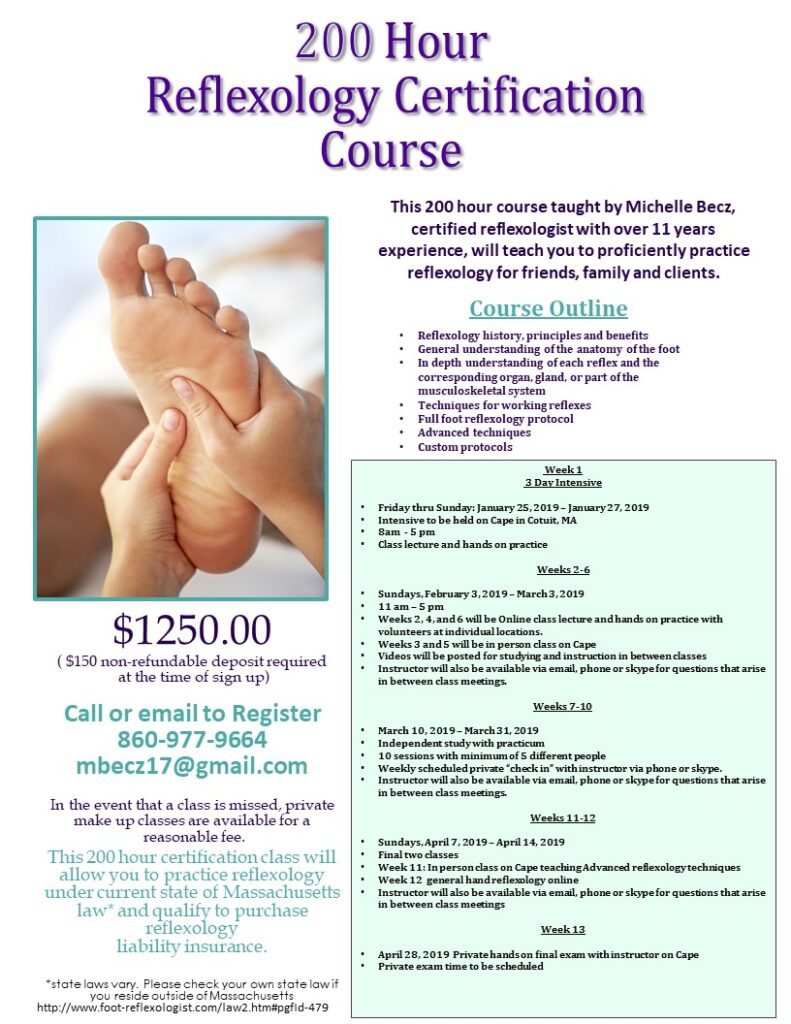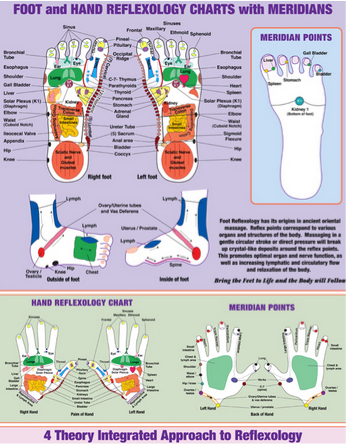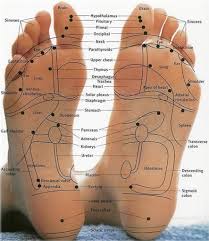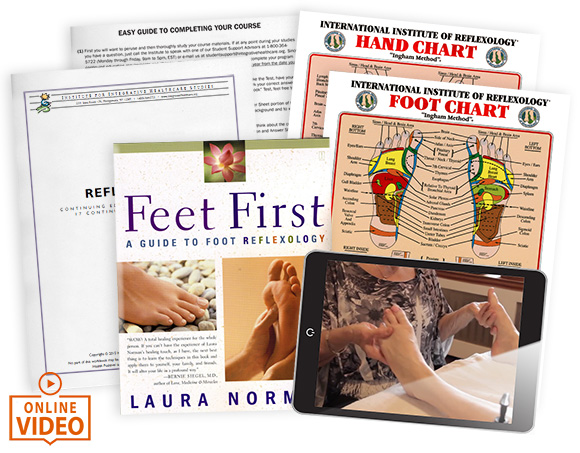If you’ve ever been curious about taking a reflexology course, you may be wondering if there are any prerequisites you need to meet beforehand. Luckily, the Centre of Wellness has you covered with their online classes on how to get trained in Reflexology. Whether you’re a beginner or have some experience in the field, these courses are designed to provide you with the knowledge and skills you need to succeed. Join the thousands of students who have already benefited from the Centre of Wellness’s comprehensive training program and embark on a journey of self-discovery and healing through reflexology. Check out their website at https://beautytrainingcoursesonline.com/courses-overview/ to learn more and take the first step towards becoming a reflexology expert.
Overview of Reflexology
Reflexology is a holistic healing therapy that involves the application of pressure on specific areas of the feet, hands, or ears. This therapy is based on the belief that these areas correspond to different organs and systems within the body. By manipulating these reflex points, reflexologists aim to promote relaxation, improve overall well-being, and restore the body’s natural balance.
Definition of Reflexology
Reflexology, also known as zone therapy, is an alternative medicine practice that dates back thousands of years. It is rooted in the notion that various reflex points on the body can be stimulated to alleviate pain, reduce stress, and enhance the body’s ability to heal itself. It is important to note that reflexology is not meant to replace medical treatment, but rather to complement it.
Importance of Reflexology
Reflexology offers numerous benefits that go beyond relaxation. By stimulating the reflex points, it can improve blood circulation, relieve tension, and promote the release of endorphins, which are natural painkillers. Additionally, reflexology can enhance the functionality of organs and systems, boost immunity, and facilitate detoxification. It is a safe and non-invasive therapy that can be enjoyed by people of all ages.
Benefits of Learning Reflexology
Learning reflexology can be a rewarding experience, both personally and professionally. As a reflexologist, you have the opportunity to make a positive impact on the well-being of others. By understanding the principles and techniques of reflexology, you can offer relief to individuals suffering from various health conditions, such as headaches, digestive disorders, and chronic pain. Moreover, reflexology can open doors to a fulfilling career and serve as a valuable addition to existing healthcare practices.
Importance of Prerequisites
Before embarking on a reflexology course, it is essential to fulfill certain prerequisites. These prerequisites ensure that learners have the necessary foundation and readiness to engage in effective learning and practice. By establishing these requirements, the quality and success of reflexology education can be enhanced.
Why Prerequisites Are Necessary
Prerequisites serve as a framework for learning, allowing students to build upon fundamental knowledge and skills. They provide a baseline understanding and prepare learners for more advanced concepts and techniques. By having prerequisites in place, students can maximize their learning potential and ensure a solid foundation in reflexology.
How Prerequisites Ensure Effective Learning
By ensuring that learners meet certain prerequisites, reflexology courses can maintain a suitable learning environment. When all participants possess the necessary background knowledge and skills, instructors can focus on teaching more complex concepts and refining practical techniques. This creates a conducive atmosphere for effective learning and promotes the overall success of the course.
Who Should Consider Prerequisites
Prerequisites are valuable for individuals interested in enrolling in a reflexology course. Whether you are a healthcare professional looking to expand your skill set or someone passionate about holistic practices, fulfilling the prerequisites ensures that you are well-prepared to embark on your reflexology journey. Additionally, prerequisites help prospective students assess their own readiness and commitment to the course, ensuring a positive learning experience.

This image is property of images.squarespace-cdn.com.
Basic Requirements
To embark on a reflexology course, certain basic requirements must be met. These requirements ensure that learners have the necessary attributes to fully engage in the learning process and practice reflexology effectively.
Minimum Age Requirement
Most reflexology courses have a minimum age requirement in place. This age restriction helps to ensure that learners are mature enough to comprehend and apply the principles of reflexology responsibly. The specific minimum age requirement may vary depending on the course and provider, so it is important to verify this information before enrolling.
Educational Background
While a specific educational background is not always required for reflexology courses, a basic understanding of human anatomy and physiology can be beneficial. Knowledge of these subjects can enhance the comprehension and application of reflexology techniques. However, providers typically offer introductory courses that cater to individuals without prior medical or healthcare education.
Language Proficiency
Proficiency in the language of instruction is essential to fully comprehend and participate in the reflexology course. Courses may be conducted in various languages, so it is important to ensure that you meet the language requirements specified by the course provider. This ensures effective communication and engagement during the learning process.
Physical Fitness
Reflexology involves physical contact with clients’ feet, hands, or ears, and practitioners need to be physically capable of performing these techniques. While reflexology can be adapted to accommodate certain physical limitations, a certain level of physical fitness is necessary to ensure the safety and comfort of both the practitioner and the client. Before enrolling in a reflexology course, it is important to consider your own physical capabilities and any necessary accommodations.
Technical Requirements
To participate in an online reflexology course, certain technical requirements must be met. These requirements ensure smooth access to course materials and facilitate effective learning through various online platforms.
Access to a Computer or Mobile Device
To access online reflexology courses, you will need a computer, laptop, tablet, or smartphone. This device will enable you to access course materials, participate in discussions, and complete assessments. The specific device requirements may vary depending on the course provider, so it is important to verify compatibility before enrolling.
Reliable Internet Connection
A stable and reliable internet connection is crucial for online reflexology courses. It allows for seamless streaming of video content, participation in live sessions, and effective communication with instructors and fellow learners. Before enrolling, ensure that your internet connection is capable of supporting the technical requirements of the course.
Compatible Operating System
Certain online reflexology courses may have specific operating system requirements. It is important to verify that your device’s operating system is compatible with the course platform. This ensures that you can access and navigate the course materials without any technical limitations.
Required Software or Applications
Some online reflexology courses may require the use of specific software or applications. These tools can enhance the learning experience and facilitate effective communication and collaboration. It is important to familiarize yourself with the required software or applications and ensure that you have access to them before enrolling.
Audio and Video Capabilities
Online reflexology courses often incorporate audio and video components. These may include instructional videos, live sessions, or interactive discussions. It is important to have audio and video capabilities on your device to fully engage with the course content and participate in the learning activities.

This image is property of cultivatinginnerstillness.com.
Health and Safety Prerequisites
For the safety of both the practitioner and the client, certain health and safety prerequisites must be met before enrolling in a reflexology course. These prerequisites ensure that individuals are in good health and possess the necessary understanding of basic first aid.
Good General Health
Being in good general health is essential for any aspiring reflexologist. Reflexology involves physical contact and manipulation of clients’ feet, hands, or ears, which requires practitioners to be free from any contagious diseases or infections. It is important to assess your own health before enrolling in a reflexology course to ensure that you can safely perform the techniques.
Absence of Certain Medical Conditions
Certain medical conditions may prevent individuals from participating in reflexology courses. For example, individuals with open wounds, skin infections, or foot ulcers may not be suitable candidates for reflexology practice. Additionally, individuals with circulatory disorders or blood clotting conditions may need to consult with their healthcare provider before enrolling. It is important to consider any existing medical conditions and seek guidance if necessary.
Physical Fitness Assessment
Before enrolling in a reflexology course, some providers may require a physical fitness assessment. This assessment ensures that individuals are physically capable of performing the techniques without causing harm to themselves or their clients. The specific requirements for the physical fitness assessment may vary depending on the course provider.
Understanding of Basic First Aid
Basic knowledge of first aid is important for reflexologists to be able to respond appropriately and promptly in case of any minor injuries or emergencies during a session. Understanding basic first aid techniques, such as wound care and CPR, can contribute to the safety and well-being of both the practitioner and the client. Consider acquiring basic first aid training before or during your reflexology course.
Experience
While not always compulsory, having certain experience prerequisites can enhance the learning and practice of reflexology. Experience in related industries and a minimum number of practical hours can offer valuable insights and skills.
Relevant Industry Experience
Having prior experience in fields related to healthcare, wellness, or bodywork can provide a foundation for learning reflexology. Experience in massage therapy, aromatherapy, or physical therapy, for example, can offer a deeper understanding of the human body and its response to touch. However, it is important to note that prior experience is not always required, as reflexology courses often provide comprehensive introductory training.
Minimum Practical Hours
To ensure hands-on competence, many reflexology courses specify a minimum number of practical hours. These hours allow learners to develop their technique, gain confidence, and refine their reflexology skills under supervision or as part of their training. The specific practical hour requirement may vary depending on the course provider.
Recommendation Letters
Some reflexology courses may request recommendation letters from individuals who can attest to your skills or experience in related fields. These letters offer insight into your competence and dedication to reflexology. While recommendation letters are not always mandatory, they can strengthen your application and indicate a genuine interest in pursuing reflexology as a profession.

This image is property of www.yorkholistictraining.co.uk.
Certifications and Qualifications
Attaining certifications and qualifications in reflexology demonstrates competency and commitment. These credentials validate your knowledge and skills in the field and can enhance your credibility as a reflexology practitioner.
Existing Certifications in Related Fields
If you already hold certifications or qualifications in related fields, such as massage therapy or acupuncture, they may be recognized as prerequisites or may shorten the duration of your reflexology training. Existing certifications can contribute to a holistic understanding of the body and its interconnected systems, enriching your reflexology practice.
Accredited Training Program Completion
Completing an accredited reflexology training program is often a prerequisite for obtaining professional certifications. Accredited programs ensure that the curriculum meets industry standards and that instructors are qualified and experienced. By completing an accredited training program, you can gain comprehensive knowledge and practical skills necessary for practicing reflexology.
Continuing Education Requirements
To stay current with advancements in the field of reflexology and to maintain professional competence, many reflexology associations require practitioners to fulfill continuing education requirements. These requirements may involve attending workshops, conferences, or further training courses. It is important to be aware of the continuing education requirements of the reflexology associations in your region to ensure ongoing professional development.
Legal and Ethical Considerations
Reflexology, like any other healthcare practice, is subject to legal and ethical guidelines. Familiarizing yourself with these considerations is crucial to ensure the responsible and ethical practice of reflexology.
Licensing Requirements
In some jurisdictions, reflexology practitioners may be required to obtain a license or registration to legally practice. These licenses are often governed by specific regulatory bodies or associations. It is essential to research and comply with the licensing requirements in your region to ensure that you are practicing reflexology within the legal framework.
Ethical Guidelines
Ethical guidelines provide a framework for professional conduct and ensure client safety, privacy, and confidentiality. Following ethical guidelines promotes trust within the practitioner-client relationship and upholds the integrity of the reflexology profession. Familiarize yourself with the ethical guidelines established by reflexology associations or professional bodies to ensure ethical practice.
Code of Conduct
A code of conduct outlines the professional behavior expected of reflexology practitioners. It defines principles of integrity, respect, and accountability. Adhering to a code of conduct helps maintain professional standards and fosters a positive reputation for the reflexology industry. It is important to be familiar with and abide by the code of conduct established by reflexology associations or professional bodies.
This image is property of www.filepicker.io.
Financial Prerequisites
Before enrolling in a reflexology course, it is important to consider the financial aspects. Understanding the tuition fees, additional costs, payment options, and potential financial assistance can help you plan for your reflexology education.
Tuition Fees
Reflexology courses typically have tuition fees that vary depending on the course provider, duration, and level of training. It is important to research and compare different course options to determine the tuition fees associated with each. Taking into account the cost of the training program allows you to plan your budget and make an informed decision.
Additional Costs
In addition to tuition fees, there may be additional costs associated with a reflexology course. These costs can include textbooks, course materials, equipment, and any required uniforms or attire. It is important to factor in these additional costs when considering the overall investment in your reflexology education.
Payment Options
Reflexology course providers may offer different payment options to accommodate various financial situations. Common payment options include lump-sum payments, installment plans, or financing options. Understanding the available payment options allows you to choose the option that best suits your financial circumstances.
Financial Assistance
To assist individuals with financial constraints, some reflexology course providers or external organizations offer financial assistance programs or scholarships. These programs can help alleviate the financial burden of tuition fees or provide support for related expenses. Research available financial assistance options and eligibility criteria to determine if you qualify for any support.
Course-Specific Prerequisites
Certain reflexology courses may have additional prerequisites that are specific to the course content, duration, or specialization. These course-specific prerequisites ensure that learners have the necessary background or skills to engage in specialized reflexology training.
Specific Educational Background
Some reflexology courses may require a specific educational background as a prerequisite. For example, courses with a focus on reflexology for prenatal care may require prior training or experience in childbirth education or doula services. Understanding the specific educational background requirements allows you to choose a course that aligns with your existing knowledge and qualifications.
Industry Experience in a Specialization
Specialized reflexology courses may require industry experience in a particular field. For instance, a course specializing in reflexology for sports injury management may require experience in sports therapy or physical rehabilitation. Having experience in a related specialization ensures that learners have a context for applying reflexology techniques within that specific domain.
Additional Skill Requirements
Certain reflexology courses may have additional skill requirements to ensure readiness for specialized training. These skill requirements can vary widely depending on the course content. Examples may include prior training in hand therapy for a course focusing on hand reflexology or experience in geriatric care for a course specializing in elderly clients. Assess your own skill set and determine if you meet any additional skill prerequisites before enrolling in a specialized reflexology course.
In conclusion, reflexology offers a holistic approach to healing and well-being, but pursuing a reflexology course requires meeting certain prerequisites. These prerequisites ensure that learners have the necessary foundation, readiness, and commitment to engage in effective reflexology learning and practice. By understanding and fulfilling these prerequisites, individuals can embark on a fulfilling journey in the field of reflexology, enhancing their own well-being while positively impacting the lives of others.


